The concept of "good" and "evil" is fluid and subject to interpretation from "summary" of Human, All-Too-Human (Parts One and Two) by Friedrich Wilhelm Nietzsche
In the realm of morality, one must navigate through a landscape that is ever-changing and open to individual interpretation. What may be considered "good" by one person could easily be perceived as "evil" by another. Friedrich Nietzsche delves into this complex interplay of values and beliefs in his work "Human, All-Too-Human (Parts One and Two)." Nietzsche challenges the traditional notions of good and evil, arguing that these concepts are not fixed or universal. Rather, they are fluid and subject to the whims of personal perspective. What one society deems as virtuous and moral may be seen as abhorrent and immoral by a different culture. This variability underscores the malleability of moral standards and the inherent subjectivity of defining good and evil. Moreover, Nietzsche emphasizes the role of individual interpretation in shaping our understanding of good and evil. Each person brings their own unique experiences, biases, and beliefs to the table when evaluating moral questions. This diversity of viewpoints leads to a plethora of moral codes and ethical systems that can sometimes clash or overlap. The philosopher also highlights the influence of power dynamics on the construction of good and evil. Those in positions of authority often shape societal values to serve their own interests, labeling certain actions or behaviors as either good or evil to maintain control and dominance. This manipulation of morality further complicates the already intricate web of moral discernment.- Nietzsche's exploration of the fluid nature of good and evil forces us to confront the complexities and nuances of moral reasoning. By recognizing the subjectivity and variability of these concepts, we are compelled to engage in critical reflection and dialogue to navigate the ever-shifting terrain of moral judgment. In this ongoing process of interpretation and reevaluation, we are challenged to confront our preconceived notions and biases, opening ourselves up to a more nuanced and dynamic understanding of morality.
Similar Posts

Good and evil are subjective concepts, influenced by individual perspectives
The distinction between good and evil is not as clear-cut as many people believe. According to Nietzsche, these concepts are no...
Bridging moral divides requires understanding different perspectives
To bridge moral divides, we must first understand that people have different moral foundations. Just as there are different tas...
Morality shapes our political beliefs
Morality is the underlying force that molds our political beliefs. Our moral foundations drive our political ideologies, shapin...

Morality should not be based on fear or coercion
Morality cannot be built on fear or coercion, for such a foundation is weak and ultimately unsustainable. When individuals are ...
The existentialist focus on individual experience can lead to feelings of isolation and alienation
Existentialists place great emphasis on the individual's experience, viewing it as the foundation of existence. They argue that...


